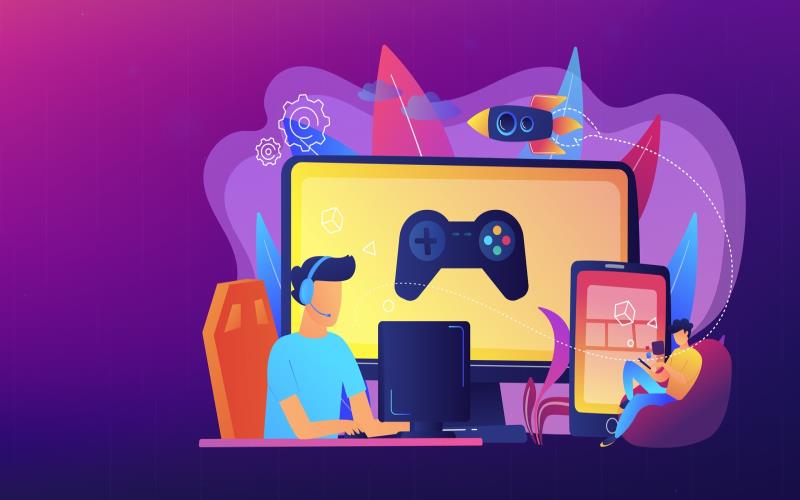As technology continues to advance and player preferences evolve, the landscape of online ninja slotxo gaming is constantly changing. From cutting-edge innovations in virtual reality to the rise of cloud gaming platforms, the future of online gaming promises to be exciting and dynamic. In this article, we’ll explore some of the key trends and predictions shaping the future of online gaming.
1. Virtual Reality (VR) Gaming
Virtual reality has the potential to revolutionize the gaming slotxo auto game experience, offering players a level of immersion and interactivity that was previously unimaginable. With advancements in VR technology, such as improved graphics, motion tracking, and haptic feedback, VR gaming is becoming increasingly accessible and realistic.
In the coming years, we can expect to see a proliferation of VR gaming experiences, from immersive open-world adventures to fast-paced multiplayer shooters. As VR hardware becomes more affordable and widespread, VR gaming is poised to become a mainstream phenomenon, attracting new players and expanding the boundaries of interactive entertainment.
2. Cloud Gaming
Cloud slotxo เล่นฟรี gaming, or gaming-as-a-service, is another trend that is set to reshape the future of online gaming. Cloud gaming platforms allow players to stream games directly from remote servers, eliminating the need for expensive gaming hardware and physical game downloads.
With cloud gaming, players can access a vast library of games on demand, play across multiple devices, and seamlessly transition between gaming sessions without any loss of progress. As internet infrastructure continues to improve and latency issues are addressed, cloud gaming has the potential to become the primary way that players consume and experience games in the future.
3. Cross-Platform Play
Cross-platform play, which allows players on different gaming platforms to play together in the same game, is becoming increasingly common in online gaming. Games like Fortnite, Rocket League, and Minecraft have paved the way for cross-platform play, enabling players on PC, console, and mobile devices to compete and collaborate in the same virtual worlds.
In the future, we can expect to see more games embrace cross-platform play as developers recognize the benefits of breaking down barriers between gaming communities. Cross-platform play not only expands the player base for multiplayer games but also fosters greater inclusivity and connectivity within the gaming community.
4. Free-to-Play Models
The free-to-play model, which allows players to download and play games for free with optional in-game purchases, has become increasingly prevalent in online gaming. Games like Fortnite, Apex Legends, and League of Legends have demonstrated the viability of this business model, generating significant revenue through microtransactions and in-game purchases.
In the future, we can expect to see more games adopt the free-to-play model as developers seek to attract larger player bases and maximize monetization opportunities. However, the success of free-to-play games will depend on striking the right balance between providing a compelling gameplay experience and offering fair and ethical monetization options for players.
5. AI and Procedural Content Generation
Artificial intelligence (AI) and procedural content generation are poised to play a significant role in the future of online gaming. AI algorithms can be used to create dynamic and adaptive gameplay experiences, where the game world and its inhabitants respond intelligently to player actions and preferences.
Procedural content generation, which involves using algorithms to generate game content dynamically, offers infinite possibilities for creating diverse and replayable gaming experiences. From procedurally generated levels and quests to AI-driven NPCs and enemies, these technologies have the potential to revolutionize game design and storytelling in the future.
Conclusion
The future of online gaming is bright and full of promise, with exciting trends and innovations on the horizon. From virtual reality and cloud gaming to cross-platform play and AI-driven experiences, the possibilities for the future of online gaming are limitless. As technology continues to evolve and player expectations evolve, the only certainty is that the future of online gaming will be dynamic, immersive, and full of surprises.

